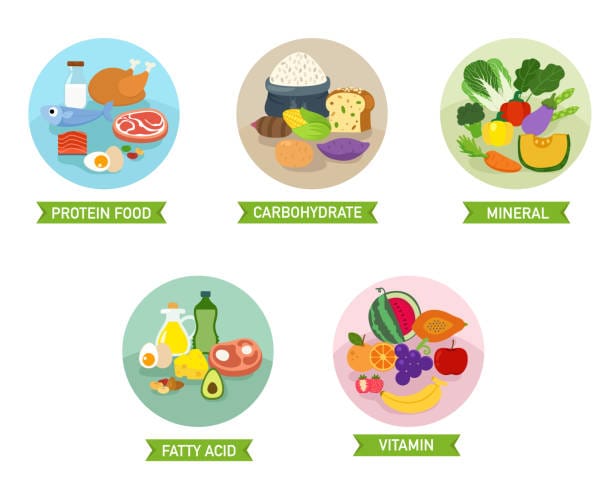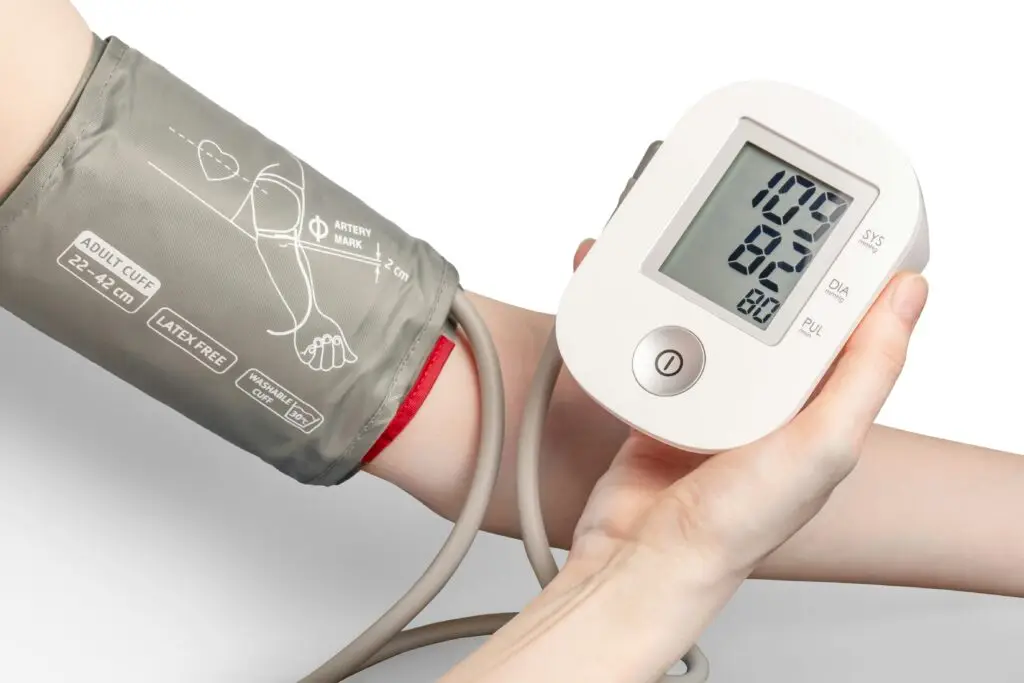
Eating healthy is more than just counting calories, it’s about fueling your body with the right essential nutrients that keep you energized, strong, and well-functioning every day. Whether your goal is weight management, increased energy, or overall wellness, understanding essential nutrients is the foundation of a healthful diet and lifestyle.
Read this complete guide to learn about all the crucial nutrients your body needs, their benefits, and how you can incorporate them into your meals. At the end, discover a special doctor-approved meal plan tailored to support your personalized nutrition goals!
What is Healthy Nutrition?
Healthy nutrition means providing your body with a balanced intake of all essential nutrients to support growth, repair damaged tissues, maintain vital bodily functions, and prevent disease. A well-rounded diet includes foods from various groups to supply:
- Macronutrients: carbohydrates, proteins, and fats for energy and body structure
- Micronutrients: vitamins and minerals for biochemical processes
- Water and fiber: for hydration and digestive health
Benefits of Healthy Nutrition
Eating a nutrient-rich diet can:
- Boost your immune system and reduce the risk of chronic diseases such as diabetes, heart disease, and cancer
- Enhance brain function, memory, and concentration
- Increase physical strength, stamina, and recovery after exercise
- Improve digestion, metabolism, and weight management
- Promote better mood, mental health, and hormonal balance
The 7 Main Classes of Essential Nutrients
Your body depends on seven crucial classes of nutrients that it cannot produce adequately on its own, so you must obtain them from food and fluids:

- Carbohydrates
- Proteins
- Fats
- Vitamins
- Minerals
- Water
- Fiber
Why Are Essential Nutrients Important?
Without a sufficient intake of essential nutrients:
- Your energy production slows down, leaving you fatigued
- Your immune defenses weaken, increasing susceptibility to infections
- Muscle mass and bone density deteriorate, leading to weakness and injury risk
- Hormonal imbalances may occur, affecting mood and metabolism
- Your mental health and cognitive function decline over time
Essential nutrients are non-negotiable for maintaining life, health, and vitality.
In-Depth Look at Essential Nutrients
Carbohydrates, Proteins, Fats, Vitamins, Minerals, Water, Fiber
1. Carbohydrates – The Body’s Primary Energy Currency
Carbohydrates are the most efficient energy source for your body and brain. Once ingested, they are digested into glucose — the fuel your cells burn for energy.
Types of Carbohydrates
- Simple carbohydrates: Sugar, honey, fruits, and dairy products provide rapid energy but can cause quick blood sugar spikes.
- Complex carbohydrates: Whole grains, legumes, and vegetables release energy slowly, stabilizing blood sugar and providing sustained fuel.
Key Functions:
- Primary energy source during exercise and everyday activities
- Supports brain function, memory, and focus
- Regulates blood sugar and insulin levels to avoid energy crashes
- Works synergistically with fiber to enhance digestive health
Healthy Sources:
- Whole grains like brown rice, quinoa, oats
- Sweet potatoes and legumes (beans, lentils)
- Fresh fruits such as bananas, apples, and berries
Pro Tip:
Avoid refined carbs like white bread, pastries, and sugary snacks that cause blood sugar spikes and are linked to weight gain and metabolic issues.
2. Proteins – The Building Blocks of Life and Repair
Proteins are essential macronutrients composed of amino acids needed to build, repair, and maintain tissues. They are crucial for muscle growth, hormone production, and immune defense.
Functions:
- Repairs muscles, skin, organs, and wounds
- Essential for producing enzymes and hormones that regulate body functions
- Supports a robust immune system to fight infections
- Promotes strong hair, nails, and healthy skin
Quality Sources:
- Lean meats: chicken, turkey, lean cuts of beef
- Fish: salmon, tuna, mackerel – rich in omega-3 fat and protein
- Plant-based proteins: tofu, beans, lentils, chickpeas, quinoa
- Dairy: eggs, Greek yogurt, low-fat milk
Daily Requirement:
- Around 0.8 to 1.5 grams per kilogram of body weight, increasing with physical activity, age, or recovery needs
Extra Insight:
Complete proteins (containing all essential amino acids) mostly come from animal sources, but combining plant foods (e.g., rice and beans) ensures you get a full amino acid profile.
3. Fats – Vital for Brain Health and Energy Storage
Fats often get a bad reputation, but they are essential for hormone balance, brain function, nutrient absorption, and protecting organs.
Types of Fats:
- Unsaturated fats (healthy): olive oil, avocados, nuts, seeds, and fatty fish
- Saturated fats: found in dairy and meat—limit intake to reduce heart disease risk
- Trans fats: artificial fats in processed foods; avoid completely
Role in the Body:
- Provides concentrated energy — 9 calories per gram
- Supports brain development, memory, and cognitive function
- Aids in the absorption of fat-soluble vitamins A, D, E, and K
- Protects vital organs and maintains body temperature
Healthy Fat Sources:
- Extra virgin olive oil, coconut oil
- Flaxseed, chia seeds, walnuts
- Fatty fish like salmon and sardines (rich in omega-3 fatty acids)
4. Vitamins – Micro Nutrients with Macro Effects
Vitamins are organic compounds required in small amounts but are crucial regulators of body processes, immunity, tissue repair, and energy metabolism.
Types & Functions:
- Fat-soluble vitamins (A, D, E, K):
- A: Vision and skin health
- D: Bone growth and immune support
- E: Antioxidant protecting cells
- K: Blood clotting and bone metabolism
- Water-soluble vitamins (C, B-complex):
- C: Immune booster and antioxidant
- B vitamins: Energy metabolism, red blood cell formation, nervous system health
Common Sources:
- Citrus fruits, berries, and leafy greens for vitamin C and folate
- Dairy, eggs, and sunlight (for Vitamin D synthesis)
- Nuts, seeds, and whole grains for B vitamins
5. Minerals – The Inorganic Powerhouse for Body Functions
Minerals like calcium, iron, magnesium, and potassium are inorganic elements necessary for structural and electromagnetic functions.
Key Roles:
- Calcium: Builds and strengthens bones and teeth
- Iron: Crucial for oxygen transport via red blood cells
- Magnesium: Muscle function, nerve transmission, and energy production
- Potassium: Regulates fluid balance, heart rhythm, and muscle contractions
Mineral-rich Foods:
- Dairy and leafy greens for calcium
- Red meat, legumes, and fortified cereals for iron
- Nuts, seeds, whole grains for magnesium
- Fruits like bananas and vegetables like potatoes for potassium
6. Water – The Universal Solvent and Body’s Lifeline
Water makes up about 60% of your body weight and is essential for nearly every physiological process.
Crucial Functions:
- Regulates body temperature through sweating and respiration
- Transports nutrients, oxygen, and waste products in and out of cells
- Flushes out toxins via urine and sweat
- Keeps skin hydrated, promoting elasticity and youthful appearance
Daily Water Intake:
- Recommended at minimum 8 glasses (about 2 liters) daily
- Increase during exercise, hot climates, or illness
Sources:
- Plain water, herbal teas
- Water-rich fruits and veggies like cucumbers, watermelon, celery
7. Fiber – The Digestive System’s Best Ally
Fiber is a type of carbohydrate that your body can’t digest, yet it plays an essential role in digestive health and chronic disease prevention.
Types of Fiber:
- Soluble fiber: dissolves in water, slows digestion, helps lower cholesterol and blood sugar (found in oats, apples, beans)
- Insoluble fiber: adds bulk to stool, promotes regular bowel movements, prevents constipation (found in whole grains and vegetables)
Fiber Benefits:
- Improves gut health by feeding beneficial bacteria
- Supports weight management by increasing satiety
- Helps stabilize blood sugar levels
- Lowers bad cholesterol (LDL) and supports cardiovascular health
High-Fiber Foods:
- Whole grains, legumes
- Fresh fruits and vegetables
Frequently Asked Questions
1. What is healthy nutrition?
A. Healthy nutrition involves eating a variety of foods to ensure that your body receives all the essential nutrients it needs to grow, repair, and stay healthy.
2. Why do we need essential nutrients?
A. Because our bodies cannot synthesize some nutrients in adequate amounts, we must get them from food to function properly and prevent disease.
3. What are the 7 main essential nutrients?
A. Carbohydrates, proteins, fats, vitamins, minerals, water, and fiber
4. How do essential nutrients support overall health?
A. They provide energy, build and repair tissues, regulate bodily functions, and maintain immune and mental health
A Message from Dr. Zara
Sometimes starting your healthy eating journey feels overwhelming, but remember, you’re not alone. I’m here to support you .
To make nutrition easier and personalized, I’ve designed special meal plans tailored to meet your individual needs, preferences, and lifestyle.
To get your exclusive, doctor-approved meal plan, simply send me an email at DRZARAMULLA@GMAIL.COM

